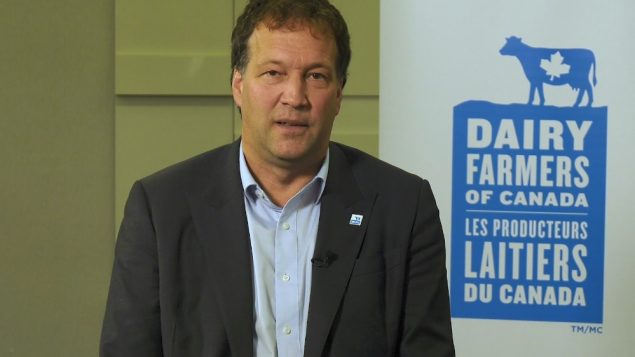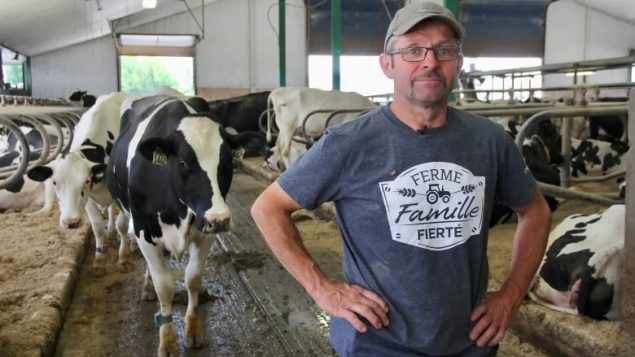Trade deal still needs approval from the three government’s national parliaments
It’s been called NAFTA 2.0 , the North American Free Trade Agreement, with Canada, the U.S. and Mexico.
While Mexico and the U.S. had reached a tentative deal, Canada and the U.S. had been involved in long drawn out negotiations.
A deal was reached late Sunday night with a deal now called USMCA, U.S-Canada-Mexico Agreement.
An official statement released late Sunday said, “USMCA will give our workers, farmers, ranchers, and businesses a high-standard trade agreement that will result in freer markets, fairer trade and robust economic growth in our region, It will strengthen the middle class, and create good, well-paying jobs and new opportunities for the nearly half billion people who call North America home,” the statement said. “We look forward to further deepening our close economic ties when this new agreement enters into force.”
Canada had been arguing to retain “Chapter 19” an international trade dispute arbitration panel which the U.S had wanted to scrap, and which seems to have retained intact in the new deal, although for now, U.S tariffs on steel and aluminium remain.
Canadians will also now be able to buy up to $150 of goods in the U.S before paying duty taxes, up from the previous so-called “de minimus” level of $20. While this will be good for Canadian consumers who shop online from the U.S., it may not so good for Canadian retailers.

Foreign Affairs Minister Chrystia Freeland and United States Trade Representative Robert Lighthizer, shown in January, released a joint statement late Sunday. (Graham Hughes/Canadian Press)
Canadian taxpayers to pay billions in compensation for Canadian farmers in trade deals
One of major sticking points for Canada was the issue of preserving Canada’s supply management system which controls dairy production among other things. The U.S. had demanding greater access to Canadian market for milk and products, eggs, and poultry and had been seeking eventual ending of the Canadian system
“The announced concessions on dairy in the new USMCA deal demonstrates once again that the Canadian government is willing to sacrifice our domestic dairy production when it comes time to make a deal. For consumers, each concession replaces Canadian dairy products, products made with great care by Canadians, using extremely high-quality Canadian milk with no artificial growth hormones. The USMCA agreement is opening the gate even further by letting foreign products, made according to standards inferior to our own, onto the shelves of our grocery stores.” Pierre Lampron, President of Dairy Farmers of Canada (DFC). Oct 1, 2018

David Lampron, President, Dairy Farmers of Canada
Dairy farmers had already taken hits to their production with two previous trade deals with Europe (CETA) and in 13 Asia/Pacific countries (CPTPP)
Both the previous and current federal governments have promised millions of tax dollars compensation to Canadian farmers connected with CETA and some $4.3 billion over 15 years for various sectors of the supply management system associated with the CPTPP
It is expected the current Liberal government will announce more financial compensation for farmers as a result of this deal
“Very disappointing for Canada’s dairy farmers” David Wiens, VP, Dairy Farmers of Canada
The new deal gives the U.S. a 3.6 per cent greater access to Canadian dairy markets, which is much less than what the U.S. wanted, which was the eventual end of Canada’s supply management.
However, in late August while negotiations were still ongoing, the Dairy Farmers of Canada released a statement which said, “Dairy farmers and their families have already paid the price for Canada to enter into the CETA and CPTPP trade agreements, by opening the Canadian domestic market to other countries’ dairy imports. These imported products displace Canadian products, so fewer Canadian dairy products are available for our Canadian consumers”.
It went on to say, “Canadian milk adheres to some of the highest standards for quality, animal care, and the environment, without the use of the artificial growth hormone rBST. Furthermore, these concessions weaken a sector that creates jobs and billions for our economy.”
Dairy farmers in Canada are now upset at the concession saying it will still further hurt a $20 billion industry and its 220,000 related jobs. They say it will harm the Canadian family farm as it further eats away at the domestic market, already being chipped away by Liberal government deals with Europe (CETA) and 13 Asian/Pacific countries. (CPTPP).
The social and environmental advocacy group, Council of Canadians released a statement early this morning saying, “Combined with CETA, the CPTPP, and NAFTA, we are moving towards a factory farm vision for Canadian agriculture. And while energy proportionality has been removed, it has been replaced with provisions which accelerate pipeline approvals”
Saying once again farmers have been sacrificed, Maude Barlow, honourary chairperson added, “After CETA, the CPTPP, and now NAFTA, we are sure that we won’t be getting fresh, local, hormone-free milk. They (farmers) are on the front lines of all of our trade agreements. But, it is not just them. NAFTA 2.0 may affect our ability to regulate pipelines, keep our drug prices down, and successfully protect our data and financial system.”
To give some examples of the effect of these deals, CETA allows for Europe to export almost 18,000 tonnes of cheese to Canada, and at 3.25 per cent access for the CPTPP that allows for about 15,000 tonnes of cheese, and 50,000 tonnes of milk. Also under the CPTPP, Canada has agreed to market access concessions in all five of this country’s supply managed sectors: egg, poultry, dairy, hatching eggs, and turkey. In chicken alone, about 2.1 per cent of the Canadian market and for eggs about 2.3 per cent of the Canadian market.
Quebec provincial election

Quebec Liberal Premier Philippe Couillard, left, shakes hands with Coalition Avenir Quebec Leader François Legault as Parti Québécois Leader Jean-François Lisée, centre, looks on at the Qubec provincial legislature. The two are in a neck and neck race as voters go to the polls today, it’s not known what effect this USMCA deal will have on voters minds in the province, where supply management is a big issue. (Jacques Boissinot/Canadian Press)
The announcement of the tentative deal comes on the very day of a provincial election in the mainly French-speaking province of Quebec. This province is the largest supplier of milk into the national supply management system. It is unknown how, or to what extent, voters in the province may connect the federal Liberal deal to the current provincial Liberal party which is in desperate race to hold on to power.
As was the case for CETA and CPTPP, it is expected the federal government will offer more financial compensation to farmers.







For reasons beyond our control, and for an undetermined period of time, our comment section is now closed. However, our social networks remain open to your contributions.